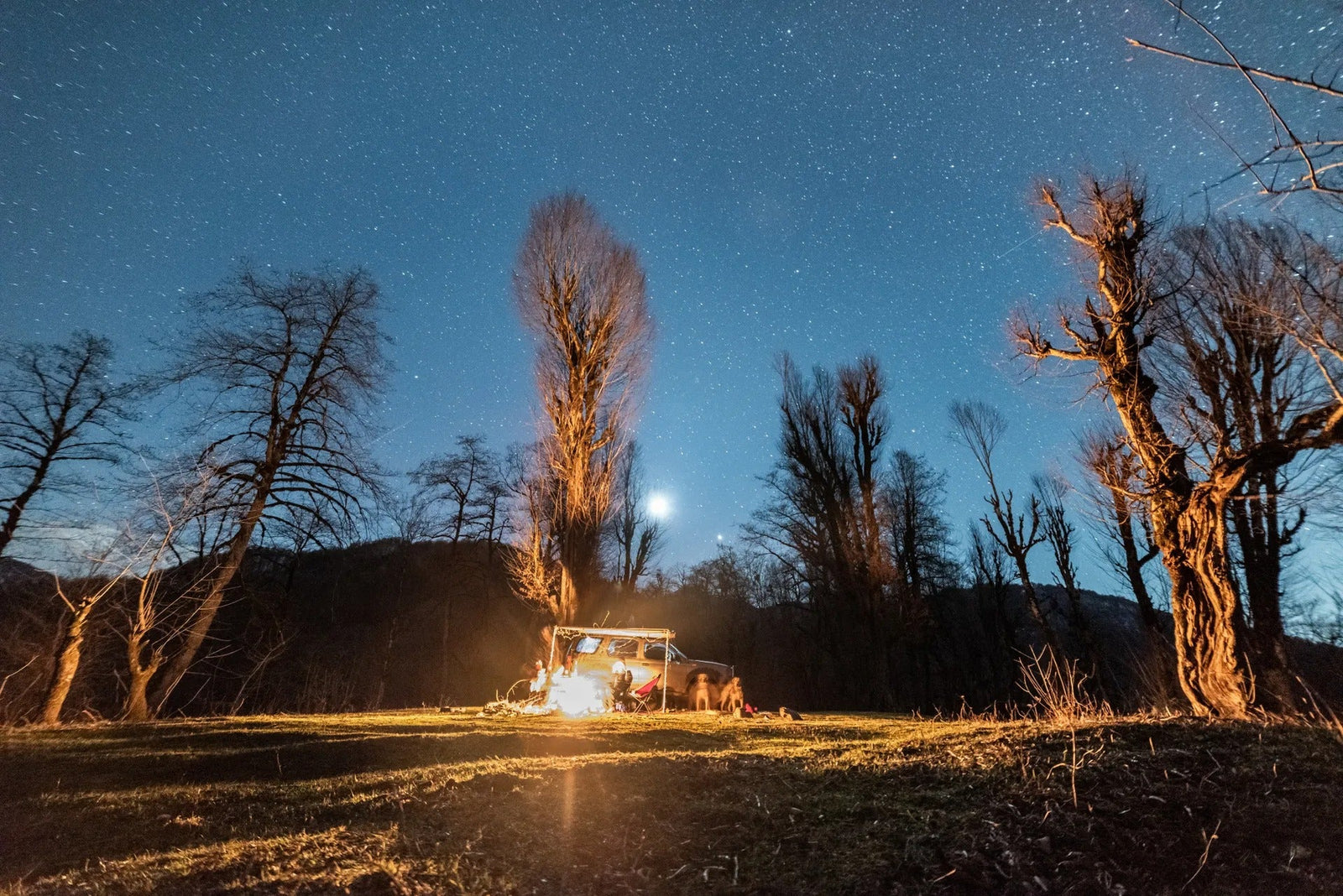Experience dry camping, also known as boondocking, where you disconnect from utilities and immerse in nature. Camp on public or private lands, but be aware of challenges and safety precautions.
Dry camping offers the ultimate camping adventure, immersing you in the purest essence of nature. Welcome to the realm of dry camping, also known as "boondocking" – a distinct camping style that liberates you from the confines of traditional campgrounds and envelops you in the embrace of the natural world. Whether you're a seasoned outdoor enthusiast or a newcomer, dry camping presents a fantastic opportunity to not only explore the wonders of the great outdoors but also forge a deeper connection with yourself.
What Exactly is Dry Camping?
At times referred to as "wild camping," dry camping shares similarities with tent camping but takes the experience to a more remote level. However, it's essential to note that dry camping involves the use of recreational vehicles (RVs), trailers, camper vans, or even tents. The core concept is camping within your vehicle without any external hookups – meaning no need for electricity, water connections, or sewage facilities. Likewise, most dry camping scenarios exclude the availability of public Wi-Fi. Essentially, it's just you and your equipment on a piece of land that might be tucked away in a secluded location.
Locations for Dry Camping: Public and Private Lands
Dry camping is possible on both public and private lands. Places like national parks and state parks are where you can often find opportunities for dry camping in public areas. While not all parks allow it, most of them do.
On the other hand, private lands give you more flexibility. You just need the landowner's permission before you park and set up your camp. If you're allowed, you might even choose to camp in a parking lot or on land with stunning mountain views or by a peaceful lake. It all depends on the agreement between you and the landowner.
The Upsides of Dry Camping
In standard campgrounds, you have access to top-notch amenities like flush toilets, showers, picnic tables, camp stores, and sometimes even Wi-Fi. When you're off the grid, you're on your own. However, every coin has two sides.
Advantages
Cost-Effective: The average cost of a typical RV campground can range from $25 to $80 per night, with higher prices for more popular and private campgrounds.
Fewer Restrictions: Without designated camping spots, theoretically, you can park your vehicle where it's most accessible to water sources or provides the best views. The reward? No reservations or lottery systems; you always have a spot.
Enhanced Privacy: If your camping dreams involve being surrounded by the unspoiled natural landscape, dry camping might be your ideal choice.
Disadvantages
Legal Uncertainties: Unfortunately, you can't just park and camp wherever you please. Understanding all the legalities is a must before choosing a location.
More Work: Without access to running water or electricity, you're reliant on methods like campfires, propane generators, or solar power to fulfill basic needs.
More Gear: You'll need everything from ample water supplies to emergency kits and off-grid power sources, which can add weight to your load.
Environmental Considerations: The challenges of staying in remote locations can be linked to your surroundings. For instance, dry camping on a mountain might expose your vehicle to colder temperatures. Installing products like AirSkirts could be necessary to prevent freezing pipes. But that's just the beginning. Dry camping entails more effort, from cooking to laundry and constantly tending to campfires. Yet, in the end, the extra work might be where you find the essence of dry camping.
Is Dry Camping Safe?
Dry camping can be really safe if you pay attention to what you need and the environment around you. To stay safe while camping, make sure you have enough water, a way to stay warm or cool when the temperature gets really high or low, and everything else you might need to take care of yourself, like plenty of food and any medications you need.
Being aware of your surroundings is super important, especially if you're out in the wild away from crowded places. For example, if you're dry camping in an area where there might be bears, you need to know how to camp without any problems. This also applies to places where people live, but most of the time, as long as you have the things you need and you know what's around you, dry camping is safe.
How to Conserve Water While Dry Camping
There are different ways to save water while dry camping. One of them is being careful about how much water you use when washing dishes. Start by getting rid of any leftover food and scraps before using as few dishes, pots, and pans as possible. Some people even choose to use a spray bottle with vinegar and water to wash dishes when they're outside.
Another great way to save water when you're dry camping is by using a showerhead that doesn't let out too much water, and it also has a button you can press to stop the water flow temporarily. This kind of showerhead is really useful for saving water. You can wet yourself, then turn off the water to put soap on and shampoo your hair, and finally turn it back on to rinse off – it's kind of like how sailors do it, which is why it's sometimes called a "navy shower."
FAQS:
FAQ 1: What Exactly is Dry Camping?
Dry camping, also known as "boondocking," is a style of camping where you set up your camp in a remote location without access to external utilities like electricity, water, sewage, and public Wi-Fi. This experience involves camping within various types of vehicles, including RVs, trailers, camper vans, or tents. Unlike traditional campgrounds, dry camping emphasizes self-reliance and immersing yourself in the natural surroundings, allowing you to disconnect from modern conveniences and reconnect with nature on a deeper level.
FAQ 2: Where Can I Go Dry Camping?
Dry camping can be enjoyed on both public and private lands. Many national and state parks offer designated areas for dry camping, allowing you to experience the wilderness away from established campgrounds. While regulations vary, most parks do permit dry camping. Private lands provide even more flexibility. If you have the landowner's permission, you can camp on their property, potentially enjoying unique settings such as parking lots, stunning mountain landscapes, or tranquil lakeshores, depending on the agreements in place.
FAQ3 : What Challenges Should I Be Aware of in Dry Camping?
While dry camping has its rewards, it comes with its share of challenges:
Legal Considerations: Unlike traditional campgrounds, you can't simply camp anywhere. Understanding local laws and regulations is crucial before selecting a camping location.
Self-Sufficiency: Dry camping requires you to be self-reliant for necessities like water and power. Campfires, propane generators, and solar solutions become essential.
Additional Equipment: Being off the grid demands more equipment, including water storage, emergency supplies, and off-grid power sources, potentially increasing your load.
Environmental Factors: Remote locations might expose your vehicle to extreme weather conditions. Proper preparation, such as using products like AirSkirts to prevent freezing pipes, is necessary.
Conclusion
Dry camping, which is also sometimes called boondocking, provides a special way to enjoy the outdoors. It's all about being independent, taking a break from modern comforts, and really getting into the natural beauty around you. While it might not be everyone's cup of tea, dry camping gives you the chance to have one-of-a-kind adventures, experience incredible solitude, and get to know both the environment and yourself on a deeper level. Whether you're excited about exploring freely or taking on the challenge of relying on yourself, dry camping encourages you to try something different and make memories that are completely your own.

